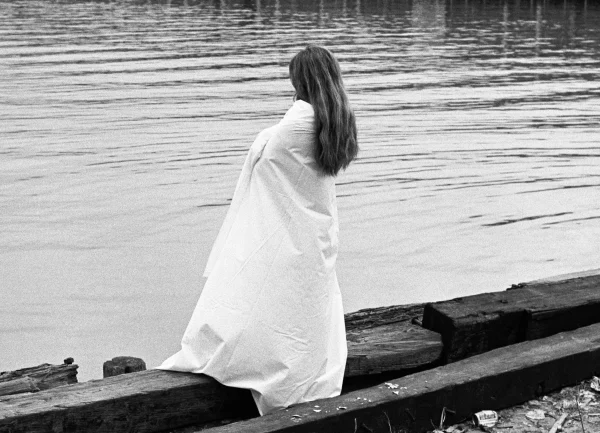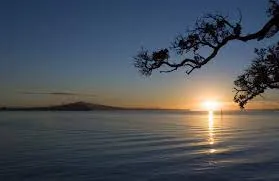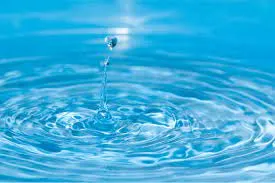Can We Use the Lake for a Mikvah?
The mikvah is one of the most important institutions in Jewish life, deeply rooted in Jewish law and tradition. For centuries, Jews have immersed themselves in natural waters and purpose-built mikvahs to achieve ritual purity. In today’s world, where convenience and access matter, many ask: Can we use the lake for a mikvah? This question is both practical and spiritual, and the answer involves exploring halachic (Jewish legal) principles, environmental considerations, and community standards.

What Is a Mikvah?
A mikvah (or mikveh) is a pool of naturally gathered water used for the purpose of ritual immersion in Judaism. The mikvah is used in various religious contexts, including:
- Women immersing after menstruation or childbirth
- Men immersing for spiritual elevation or before holidays
- Conversions to Judaism
- Immersing new utensils before use
According to halacha (Jewish law), a mikvah must contain a minimum of 40 se’ah (approximately 200 gallons) of natural water that has not been drawn with human intervention (e.g., using a bucket or pump). The water can come from rain, springs, rivers, or other naturally flowing sources.
Can a Natural Lake Serve as a Mikvah?
The short answer is: yes, a lake can be used as a mikvah under certain conditions. Lakes, rivers, and seas have been used throughout Jewish history for immersion. However, for a lake to be halachically valid, it must meet specific criteria.
Halachic Requirements for a Kosher Mikvah
Using a lake as a mikvah is not a simple matter of availability. There are halachic concerns that must be addressed:
1. The Source of the Water
The lake must be filled with natural water—ideally rainwater or water from a spring. If it has been artificially filled or maintained with tap water, it may not be valid. Spring-fed lakes are considered preferable because they have a continuous source of kosher water.
2. Stationary Water
According to some opinions, water that is constantly flowing, such as in a river or a section of a lake with strong currents, may not be ideal for immersion. However, most halachic authorities agree that as long as the body of water is large and the immersion area is calm, it can be used.
3. Accessibility and Modesty
The lake must be safe, private, and accessible. Modesty is a key component of the mikvah experience. Public lakes may pose challenges for privacy, especially for women who require discretion during immersion. This is why indoor mikvahs are more common today—they provide modest, safe, and kosher immersion conditions year-round.
4. Cleanliness and Safety
Halacha does not explicitly require the water to be clean in the modern sense, but practically speaking, a lake used for immersion should not pose a health hazard. It must be free of dangerous debris, pollution, or harmful wildlife. Jewish law prohibits placing oneself in danger for the sake of performing a mitzvah, including mikvah immersion.

Historical Use of Natural Mikvahs
In ancient and medieval times, natural bodies of water were commonly used for immersion. In Eastern Europe, women would often immerse in rivers or lakes even during winter, sometimes having to break the ice to do so. Immersion in natural waters is not new—it is a part of our heritage.
Many Hasidic and Sephardic communities continue to practice immersion in natural bodies of water, particularly for men on Erev Shabbat or before the High Holidays. Lakes, rivers, and even the ocean are embraced by these communities as spiritually uplifting alternatives to modern mikvahs.
Why Use a Lake Instead of a Built Mikvah?
There are several reasons people might want to use a lake for a mikvah:
- Accessibility: No built mikvah nearby
- Spiritual Connection: Desire for a more natural, elevated experience
- Tradition: Following ancestral customs of immersion in natural waters
- Emergency Use: Mikvah closed or unavailable at the required time
While using a lake may be spiritually inspiring, it should be done only after confirming the location meets halachic standards and is safe to use.
Consulting a Rabbi Before Immersing in a Lake
Before using a lake as a mikvah, always consult a competent halachic authority. Every situation is different. The rabbi will consider the lake’s water source, flow, cleanliness, and other halachic and safety factors. This is especially critical for women, since the laws of family purity are among the most sensitive in Jewish life.

Alternatives and Community Standards
In many places, local Jewish communities build certified mikvahs that are meticulously maintained according to halacha. These mikvahs are supervised, warm, private, and accessible to women and men who need them. Using a lake is generally considered a last resort unless you are in a community that traditionally uses natural water sources.
Spiritual Significance of Immersing in Nature
Despite practical and halachic concerns, immersing in a lake can be a powerful spiritual experience. The natural setting, silence, and awe of God’s creation can enhance one’s kavanah (intention) during immersion. Many find that immersing in a lake feels more ancient and connected to our biblical ancestors, who did not have tiled mikvah buildings but relied on rivers, streams, and springs.

Conclusion: Is a Lake a Valid Mikvah?
Yes, a lake can be used as a mikvah—if it meets halachic and safety requirements. While not always ideal, it remains a viable and meaningful option, especially when no other mikvah is available. Consulting a rabbi is essential to ensure the lake meets all necessary criteria. Whether used out of necessity or spiritual preference, immersion in a lake can be a profound act of ritual purity and divine connection.
For those seeking more than a ritual—who want a sacred experience deeply rooted in nature and halacha—using a lake for mikvah immersion may offer exactly that.



